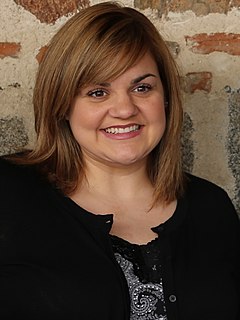A Quote by Kate Middleton
Sadly, for some mothers, this experience can be made so much harder due to challenges with our very mental health.
Quote Topics
Related Quotes
There are many challenges, sadly many challenges our mothers were used to but have endured, which is inspiring. Sadly there are many challenges that many of us are already used to and have been fighting for years, yet our strengths will inspire future generations. That's not to forget we will share many more triumphs to come. It is all a process. Ironically enough, situations that violate human philosophy unite people of different backgrounds.
There has been evolution in my work. In the beginning I was very much busy with the physical body and the limits of the physical body but that somehow naturally led me to the mental body and how I could deal with that. Stillness is so much harder, especially for three months. It was a big challenge. As a performer it is the most difficult experience one can have. And the interactive experience with the public made it even harder.
Given Freudian assumptions about the nature of children and the biological predestination of mothers, it is unthinkable for mothers voluntarily to leave their babies in others' care, without guilt about the baby's well-being and a sense of self-deprivation. Mothers need their babies for their own mental health, and babies need their mothers for their mental health--a reciprocal and symbiotic relationship.
I learned so much in Zimbabwe, in particular about the need for humility in our ambition to extend mental health care in countries where there were very few psychiatrists and where the local culture harboured very different views about mental illness and healing. These experiences have profoundly influenced my thinking.
One of the issues I think is very important, in many communities of color, there's a stigma about mental health. We find that the shaming that comes from acknowledging that one may have some issues that may relate to mental health, often people are not willing to go and seek additional help because of that shaming or that cultural stigma that's associated with it. And I think that we need to make this change in how people approach mental health.
There are whole states where people [with addiction or mental health issues] can't get to a doctor. If that were true of pancreatic cancer, if that were true of heart disease, if that were true of diabetes, we'd all understand that it made no sense at all. And yet we somehow approach mental health from a very different standard.






































